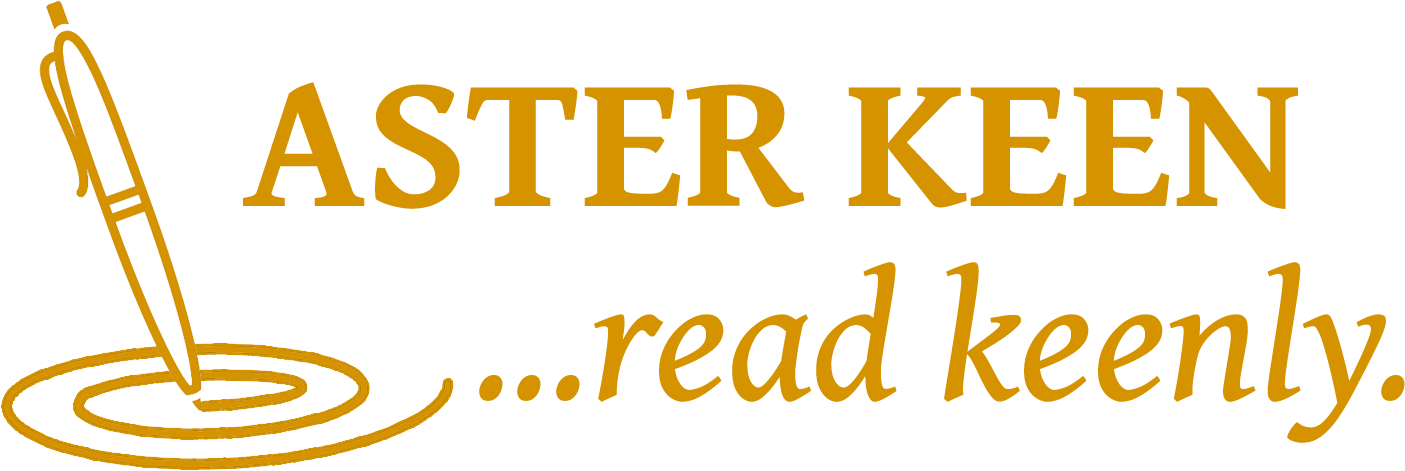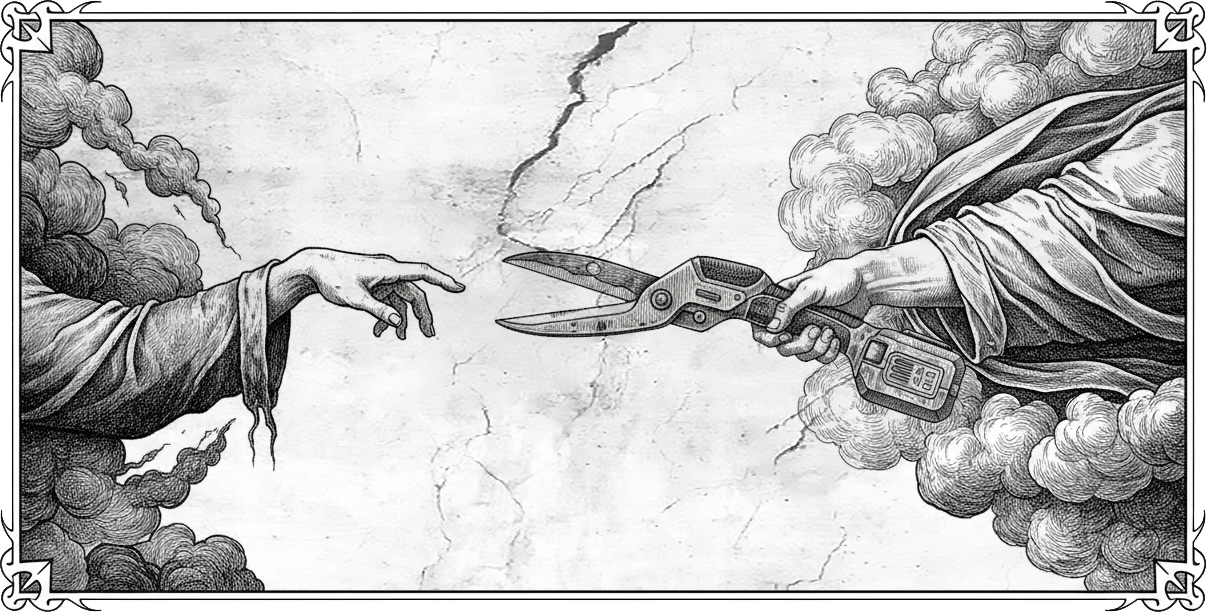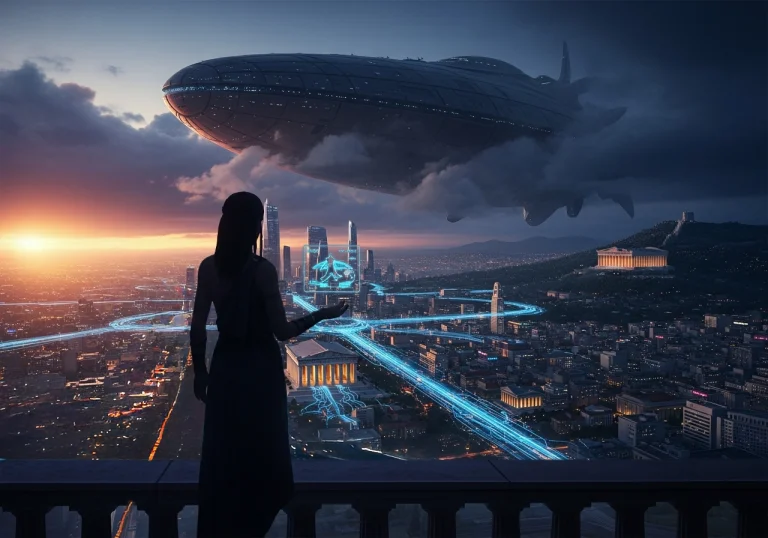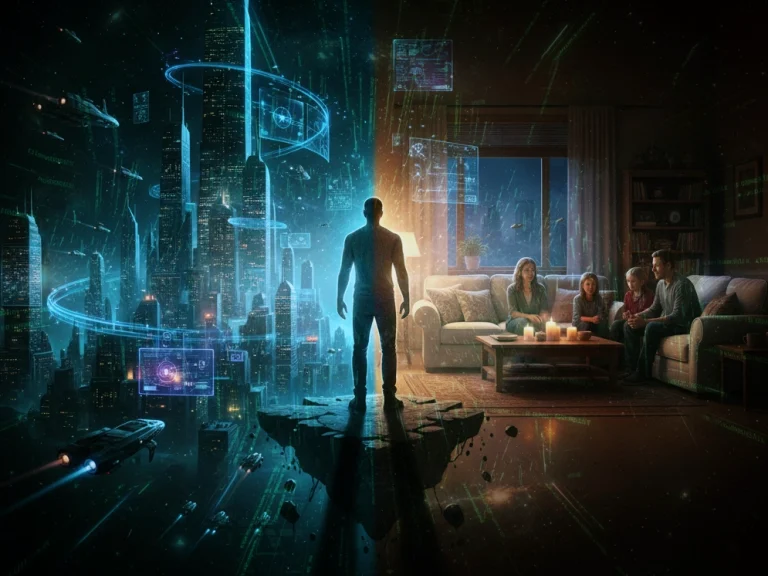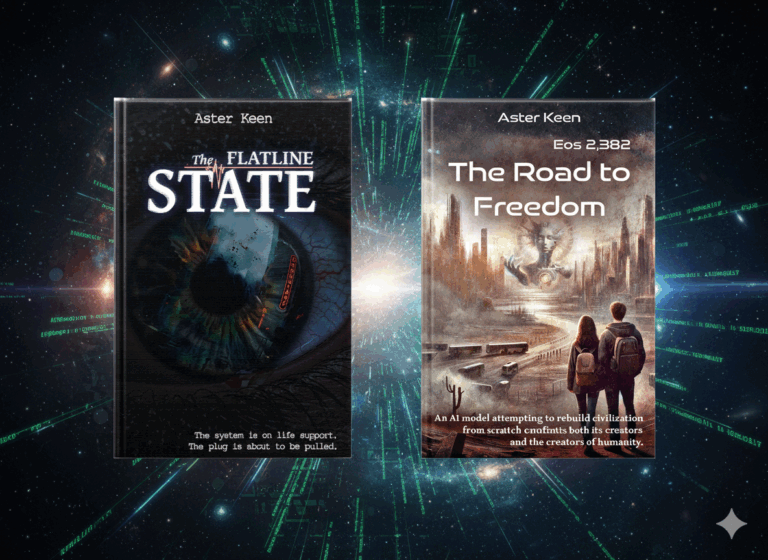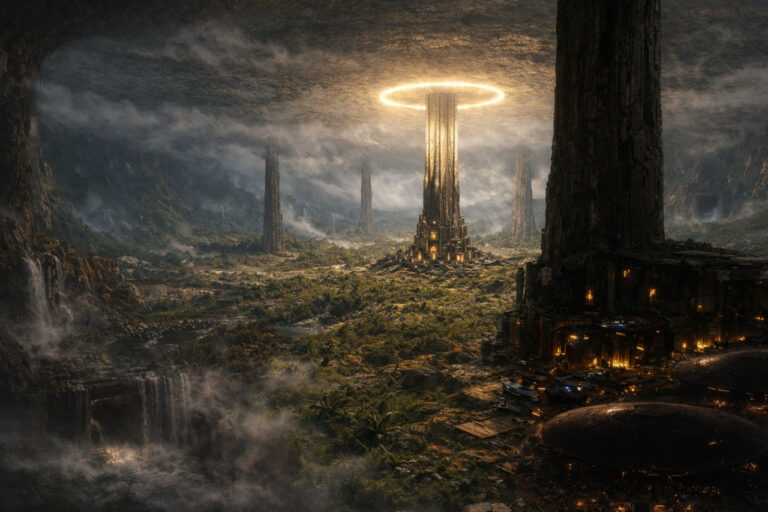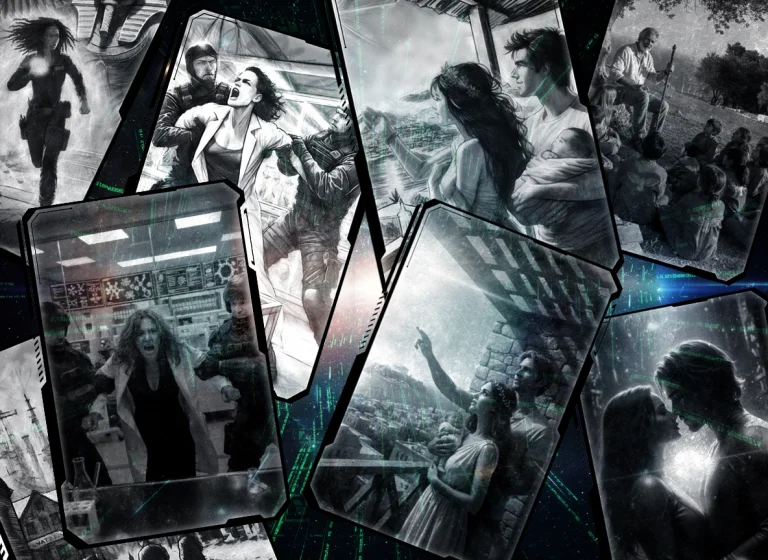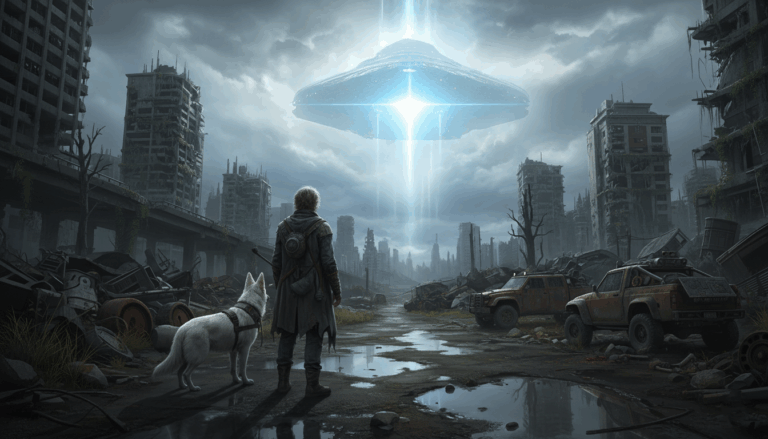From Cosmic Vistas to Gritty Streets: The Origins of ‘The Flatline State’
For those who have journeyed with me to the year 2382 in the Eos saga, exploring humanity’s struggle against cosmic forces and the philosophical depths of our existence, my new novel might feel like a sudden, jarring descent. In The Flatline State, we are not soaring through galaxies; we are navigating the rain-slicked, garbage-strewn streets of a contemporary city suffocating under a familiar gray sky. We have swapped starships for black, armored SUVs.
So, why the shift? Why step away from the grand scale of science fiction to tell a story so grounded in the grim realities of our present?
The simple answer is: necessity.
As a writer, I find science fiction to be a powerful lens for examining the human condition from a distance. It allows us to explore immense, timeless questions about power, destiny, and technology by placing them in a future context. But some questions are not timeless. They are immediate. They are the pathologies that burn through our daily headlines, the whispers of systemic corruption that have become a deafening roar, the unnerving sense that the systems designed to protect us are, in fact, the very architecture of our cages.
I felt compelled to write The Flatline State because the themes it explores—the impunity of power, the insidious abuse of technology for control, and the slow, grinding erosion of justice—are not the stuff of a distant future. They are the ghosts haunting our modern world. This is not a story I had to imagine; it is a story that demanded to be told, inspired by the enduring failures that plague societies across the globe. I wanted to use the power of fiction not just to reflect this reality, but to dissect it, to explore the root causes behind the symptoms we see every day.
At its core, however, the DNA of my writing remains the same. If the Eos series uses a macroscope to examine humanity’s place in the universe, The Flatline State uses a microscope to scrutinize the rot within our own institutions. The fundamental questions persist:
- What is the true nature of power?
- How does technology shape—and corrupt—our morality?
- Can an individual stand against an overwhelming, faceless system?
The Flatline State is not my answer to these questions. Seen through a darker, more claustrophobic lens, it is a conversation starter.
This book is a gritty, fast-paced thriller, but it is also an unflinching look at the moral compromises we make and the devastating consequences that follow. It is for readers who enjoy intricate plots, complex ethical dilemmas, and stories that linger long after the final page is turned.
While the setting may be different, the journey is the same: an exploration of what it means to be human in a world that constantly challenges our integrity. I invite you to walk these shadowed streets with me.
Aster Keen
